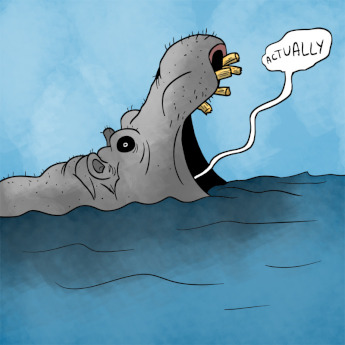Okay, a couple things about how riders work, from someone who worked both on and behind the stage for a lot of years
Not how it works. The stuff on the rider is the only thing the band doesn’t pay for. Basic context, record labels are abusive capitalism to a degree that would make pimps and payday loan managers alike hang their heads in shame for even considering. I’m pretty sure a lot of the specifics have been covered on BB previously.
When you have a major label contract, they front the money for recording, distribution and touring- And all at the low interest rate of “everything you make”. For every album sold, you get a fraction of a percentage of the sale, from which you have to pay back everything the label has paid for- Which is a LOT. That nice dinner they took you to and popped an expensive bottle of champagne to celebrate your signing? That comes out of your royalties. Recording studio? Same. Tour bus, hotels, backline eqipment, tour manager? All comes out of your future earnings. The label also can have some limited say over which gigs you take and for how much, particularly those featuring non label artists.
The stuff on the rider is about the only thing the band doesn’t have to recoup, and it’s one of the few areas of the business where they have any control. This becomes absolutely critical when you realize a lot of Billboard charting bands are effectively earning minimum wage(1), and when you start to factor in that one big club gig isn’t just income, but a whole day that food, lodging, and transportation is coming out of the venue’s pocket and not yours.
There’s also the part people don’t understand about just how grueling it is spending 40 weeks a year on the road, in a different city every day. Knowing that you can at the very least get your favorite flavor potato chip that night actually becomes worth something. I covered something like 42 states this year, and discovering that Cracker Barrel carried Moxie was a huge deal. Even if I only had one ever few weeks, it’s a little taste of home.
But back to the “paying attention” part. I cannot tell you how many times we would get to a venue, tell them we wanted to drop off props, look around, and then head to the hotel to change before the runthrough, that they would ask where we were staying. “Ummm, wherever you booked us? Like you agreed to in the contract? That you signed six months ago?” It was rare we’d end up without somewhere to stay, but half the time it ended up being a dumpy Motel6.
The rider covers your food and hotel, your sound system and technical needs, what time you’re allotted to set up and break down, how many guest passes you get, and a hundred other details from selling merchandise to who’s responsible for unloading the van.
Some of those details, like merchandising and hiring a sound guy, can make the difference between making or losing money on a gig. Most will determine whether you get on stage and have a kick ass show or grind through phoning it in. A couple, if you deal in pyrotechnics or heavy set dressing, can get people killed if things aren’t up to spec.
I literally have a section buried in my contract rider that reads “send an email to mikethebard@_____.com with the subject line ‘brown M&Ms’ so I know you’ve read this.” Is it a guarantee that everything will be taken care of? Nah. But if I get that email, the likelihood they will pay attention to the crucial bits is now high enough I can focus on the actual gig instead of putting together contingency plans for how to handle everything around the gig.
(1) Music industry math in a nutshell: You lose money on record sales. You make enough from playing shows to survive. You make millions from letting Pepsi and Goggle hang a banner on the stage.



